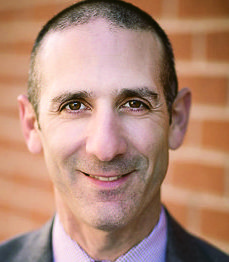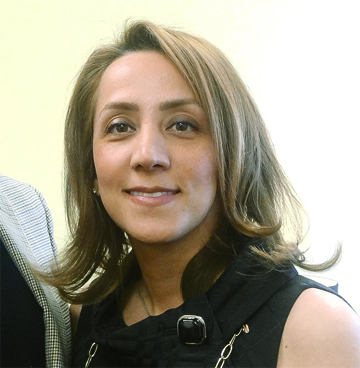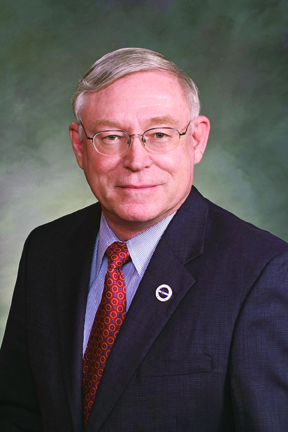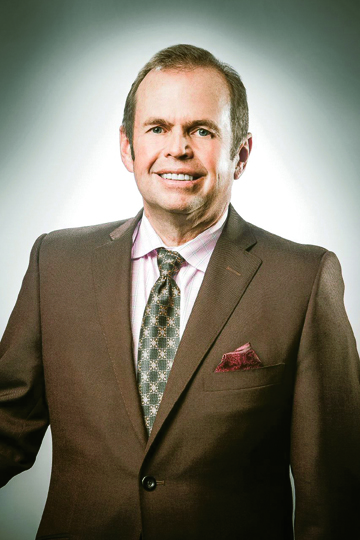
by Mark Smiley | Oct 21, 2016 | Feature Story Middle Left
by Danny Foster, Esq.
 [I want to be clear the opinions expressed in this article are my personal opinions and do not necessarily represent the view(s) of other people at FGMC. Good and reasonable people can and do have significantly divergent perspectives and opinions on social justice issues. However, what cannot be denied is that this is an important issue — and I believe it needs to be addressed. In my view, to remain silent is not an option and people who know me know I simply can’t keep silent. That said, we must engage in a respectful dialogue and keep working on these issues for the sake of our community and country].
[I want to be clear the opinions expressed in this article are my personal opinions and do not necessarily represent the view(s) of other people at FGMC. Good and reasonable people can and do have significantly divergent perspectives and opinions on social justice issues. However, what cannot be denied is that this is an important issue — and I believe it needs to be addressed. In my view, to remain silent is not an option and people who know me know I simply can’t keep silent. That said, we must engage in a respectful dialogue and keep working on these issues for the sake of our community and country].
Any Jewish man or woman who graduates law school is inevitably provided a framed picture with these important words emblazoned upon the parchment: Justice, Justice Shall You Pursue. Usually it is also written in Hebrew: Tzedeck, Tzedeck, Tirdorf. This passage comes from the book of Deuteronomy from the Old Testament. It is a reminder to baby lawyers, and even seasoned lawyers, that our highest calling in life is to pursue justice. Justice for the oppressed. Justice for the wronged. Justice for the needy. And I believe most lawyers and non-lawyers alike try and pursue justice. It’s the right way to live one’s life. However in today’s complex world it seems much more complicated, because so many people have different opinions of what “justice” actually means. And when people have opposing views on what justice means, then we obviously have different thoughts on how to pursue it. It’s similar to driving a car. If two people grab the wheel and try to steer they will inevitably drive it off the road. That doesn’t benefit anyone. And today, more than ever, it seems like we have lots of people trying to steer the car toward their own version of justice.
While I primarily practice in the field of personal injury law, pursuing justice for the injured, I have also had the privilege of representing law enforcement — usually members of the Denver Sheriff’s Department, but sometimes Denver Police as well. So as you read this article you may suspect where my inclinations lie. But I was also raised by a father who was heavily involved in the civil rights movement and even marched with Dr. Martin Luther King Jr. in Selma. So my opinion is based on a mixture of life experiences. I have been very troubled by the events of the past few years where so many good, hard-working law enforcement officers have suffered at the hands of so many ill-informed citizens and reporters. I have also been troubled when any person, regardless of race, has been killed by police when the encounter should have been routine. Police officers have the most dangerous job in America and need to make split second decisions. Life or death decisions for themselves, their partners, the suspect, and the community. How many life or death encounters do you face on a daily basis?
There have been many police officers (in our state and across the country) who have been attacked, threatened, and sometimes killed because of the groundswell of anti-police rhetoric fueled by 24-hour media cycles and non-stop social media. At least six officers were murdered across this country during the three days I wrote this article. Law enforcement deaths in the line of duty are the highest in U.S. history. That is a horrifying fact. Many of these attacks specifically targeted police due in large part to a backlash against alleged police misconduct (i.e. Dallas). Have there been police officers who have done wrong? Of course. Should they be fired or prosecuted if they break the law? Of course. Have there been valid excessive use of force complaints made? Yes, and these cases must be investigated thoroughly and with as much transparency as possible.
As it turns out the majority of excessive force complaints are found to be unsubstantiated after investigation by independent Internal Affairs (“IA”) departments. The fact is, just because someone is unarmed does not mean they do not pose a lethal threat. I have sat through innumerable IA interviews and watched police officers be thoroughly investigated. At no point in my 18 years of representing law enforcement have I ever seen an IA investigator give a pass to an officer accused of excessive force. I have represented many law enforcement officers who have been suspended or terminated due to even minor allegations of excessive force. Some discipline was justified, some was not. But the point is that most of the time law enforcement does a good job of removing bad apples. Are they perfect? No. But the belief that cops get a free pass from other cops is a gross mischaracterization of the facts (in my opinion).
The belief that all, or even most, police are racist is also something we must dispel. I’ve always hated stereotyping people. Whenever we say “All (blanks) are (blank)” we create nothing but more divisiveness and bigotry. All police officers are racists. All African-American males are thugs. All Jewish people are cheap. I could go on and on. The reality is that most police officers are not racist, but some are. Most African-American males are not thugs, but some are. Most Jewish people are not cheap, but some are. When we take the easy way out and use stereotypes to attack others, we weaken our argument and make conversations impossible. Stereotyping creates animosity, distrust, and eventually violence. Why on earth would law enforcement want to sit down with a group of Black Lives Matter delegates if they both went into this discussion automatically assuming the other group was a bunch of lunatics?
The reality is that we need our police. Imagine our society without strong, efficient law enforcement. It’s truly frightening. Honest, seasoned police officers are leaving the profession in the highest numbers ever recorded. New cadet class sizes have plummeted. Who would want to join a profession where you are being screamed at, constantly surveyed by iPhones, second guessed by newspaper reporters, shot at, beaten up, sued, and very likely suspended or fired at some point in time due to some allegations of misconduct? Just recently, a Chicago police officer refused to use her firearm when she was being viciously beaten by a suspect high on PCP because she feared the media fallout — and she almost lost her life because of it. (See Washington Post Oct. 17, 2016: Ferguson Effect?). That should scare all law-abiding citizens, regardless of race.
We need to take a deep breath, stop looking at our Facebook feed every 10 seconds, start trying to engage each other and stop pointing fingers all the time. Each case should be decided on its own merits and we should stop reflexively taking sides. We all should wait for the evidence to come out before jumping to conclusions, investigate claims of racial bias diligently and correct injustice whenever it is found.
Danny is a managing partner of Foster, Graham, Milstein & Calisher (FGMC). His practice focuses on personal injury. The law firm of FGMC, located in Cherry Creek, is a full service law firm focusing on: criminal defense, personal injury, real estate, litigation, liquor licensing, construction law, tax/estate planning, bankruptcy and zoning. This article does not create an attorney-client relationship and is for informational use only (what do you expect from an attorney!)

by Mark Smiley | Aug 29, 2016 | Feature Story Middle Left
by Shideh Kerman, AFC Urgent Care Denver, B.Eng., MBA
 As I rode the bus to Akyem, a small village in Ghana, I wondered what I could expect in this new place. I found myself embarking on a new journey after an inspiring discussion with a doctor who had been on one of the medical trips to Africa. I was sold — it sounded like the perfect opportunity for me to help a group of medical professionals set up clinics in rural villages.
As I rode the bus to Akyem, a small village in Ghana, I wondered what I could expect in this new place. I found myself embarking on a new journey after an inspiring discussion with a doctor who had been on one of the medical trips to Africa. I was sold — it sounded like the perfect opportunity for me to help a group of medical professionals set up clinics in rural villages.
We selected Ghana as our destination because of the low access of population to hospitals and medical facilities in the villages. The quality of healthcare varies across Ghana, with the smaller communities experiencing the most difficulty in obtaining quality service. Patients in villages either rely on traditional medicine or travel great distances for more comprehensive healthcare. The formerly operated system of health, known as “Cash and Carry,” led to countless deaths, as many lacked money to pay for their healthcare needs. Under that system, the health need of an individual was only attended to after payment, even in emergency cases. With a third of Ghanaians living on less than a dollar a day, healthcare is out of reach for many.
Despite these challenges, the Ghanaians I met were incredibly kind, and quick to offer any type of help. Upon my return, I felt rejuvenated, and I wondered — why do I feel so good? While the mental health benefits of volunteering have long been understood, there is research that suggests the advantages are more extensive than one may even imagine. Here are just a few of the many benefits of volunteering:
- Improve Your Health And Live Longer
Studies show that when people think about helping others, they activate a part of the brain called the mesolimbic pathway, which is responsible for feelings of gratification. Helping others doles out happiness chemicals, including dopamine and endorphins that block pain signals and oxytocin. Beside the mental benefits, Volunteering can have huge health benefits, including a reduced chance of heart disease, lessening of chronic pain, and even a longer life. Carnegie Mellon University published a report indicating that adults, aged 51 to 91, who reported at least 200 hours of volunteer work in the last year were 40% less likely to develop high blood pressure than those who did not volunteer. The health benefits of volunteering seem to only be extended to those who devote a “considerable” amount of time — about two hours per week. Older adults seem to benefit the most, possibly due to poorer health associated with aging, but people of all ages can benefit physically from the art of giving.
- Become A Leader In Your Field
When I traveled to Ghana I didn’t know how I could be of help. My experience is mostly building clinics and improving operations in high patient volume medical clinics. And that is exactly what I did in Ghana, with the difference that I had only hours to set up clinics and had to improve operations to accommodate up to 400 patients daily. It was not easy but definitely helped me with my lead ership skills.
ership skills.
Leadership skills can certainly be cultivated in students, but costly university programs can fall short in attempts to teach this skill. International Corporate Volunteerism (ICV) is a relatively new approach that provides development opportunities abroad for top talent within the corporate realm. This type of learning provides employees with direct exposure to adapting and problem solving in a new environment. Lessons like these can’t be taught in a classroom. A recent George Washington University study found that ICV programs are more effective at leadership development, both in cost and the diversity of learning, than elite, academic programs. And according to Josh Bersin, an expert on talent development, fostering employees who are successfully able to lead is the most critical indicator of a corporation’s future performance.
- Career Opportunities Await
If you are searching for a job, or are in a transition to switch to a new job, why not be proactive and join a non-profit organization instead of just waiting for the unknown. Volunteer experience has long been an afterthought in career portfolios. However, this has been changing, as more nonprofit organizations try to utilize skilled volunteers and more employers consider volunteer work when evaluating job candidates. An article in The New York Times explains that volunteering is recently becoming more important for highly skilled professionals. For example, LinkedIn, a professional networking site, responded to overwhelming feedback by adding a field for members to list their volunteer work. A survey found that 41% of employers said they consider volunteer work as important as paid work, and 20% said they made a hiring decision based on volunteer work.
- People Who Volunteer Are Happier
“Volunteering moves people into the present and distracts the mind from the stresses and problems of the self,” said Stephen G. Post, founding director of the Center for Medical Humanities in New York. Volunteering activates “happiness chemicals” that help block pain signals and relieve stress. Furthermore, while somewhat counterintuitive, plenty of research indicates giving back can be beneficial to those who suffer from acute or even chronic depression, helping individuals to gain perspective on their life and reduce stress.
How Do I Begin?
Thousands of well-meaning people around the globe yearn to donate or get involved in some way, but are unsure of the best way to give back. Most of us lack knowledge of the real issues within our community or around the world. Volunteering, rather than donating, can sometimes give more tangible results that may ultima tely be more satisfying.
tely be more satisfying.
Start by doing research on your chosen charity before committing your skills and time. No matter your values, skills, age, or background, Africa and many other third world countries have opportunities for you to make a difference. However, do not discount opportunities to volunteer within your local community. No matter where you choose to give back, it is truly a win-win for all involved. Volunteering is good for the soul, and is in many ways, an expression of appreciation for life itself.

by Mark Smiley | Jul 22, 2016 | Editorials, Feature Story Middle Left
by Bob Gardner
Coloradans: Would you like all your health care decisions for the next three years to be made by 15 unelected government bureaucrats? That’s what Amendment 69, which has qualified for this fall’s ballot, would mandate.
Before you answer, here’s a few additional facts to help you decide.
These 15 “trustees” — a fancier word for bureaucrats, by the way — would get to say which procedures and which drugs would be covered by insurance and which ones wouldn’t from 2017 until 2020. How would they get that power? Amendment 69 makes it illegal for any other health insurance company to do business in the state of Colorado. And when those companies are all gone, all decisions about any kind of payment to anyone in the health care system fall under the thumb of those unelected trustees.
They’d get to decide how long you should have to wait in the emergency room, how many months your elderly mother should have to wait for hip replacement surgery, and what treatments for your kids will and won’t be paid for.
If you don’t like the sound of that system, you should know there’ll be no opting out. If you’re wealthy, you could pay for health care from your pocket. Otherwise, your family’s care exists solely at the whim of the 15 bureaucrats.
Don’t like it? Move to Nebraska if it’s enacted. Because if we Coloradans go down this road, there’ll be no appeals, no flexibility and no choice in health care in our state.
It gets worse.
In 2020 at the latest, Amendment 69 says we’ll hold statewide elections to replace the 15 appointed bureaucrats with 21 elected bureaucrats.
That’s right — we’ll have giant campaigns across Colorado every other year to pick new health care czars. “A vote for me is a vote for liver transplants!” or “Two nose jobs in every house — vote for me!” An unending buzz of negative TV ads about how the trustee candidate’s evil opponent is trying to take away childbirth reimbursement or how their vote backed up back surgeries.
Sounds ridiculously unappealing, doesn’t it?
Obamacare’s been bad enough — its promised savings cruelly turning into a 13.4 percent average rate increase this year — but Amendment 69 will make things much worse. Its ironclad regime of single-payer health care for every resident of the state, without exception, would almost double Colorado’s state taxes overnight. It imposes an immediate 10 percent across-the-board payroll tax that would cost Coloradans a jaw-dropping $25 billion in additional taxes on top of the $27 billion the state already levies. And the whole system is specifically designed to exist outside of TABOR limits that control state and local government taxation in Colorado.
So who’s behind this nonsense?
Great question. Colorado State Sen. Irene Aguilar has been identified as one of the “leaders” of the campaign, but the funding sources are much more shadowy, with a Boulder psychologist, a Littleton physician, a Denver attorney, and a Fort Collins retiree being identified as collectively donating more than $140,000 to the cause.
Why those four people would have such a burning passion to control our health care isn’t clear to me.
What is clear is that we shouldn’t let them.
The net effect of this disastrous plan would be to drive state taxes through the roof, kill job creation (and likely most economic growth) in Colorado, and institute health care rationing for all Coloradans. All at the hands of a mysterious group of health care ideologues who’ll do their bidding through a shadow “health care Legislature” with literal power over life and death decisions.
Even Gov. John Hickenlooper was caught on tape saying he “can’t imagine there’s any chance (Amendment 69) will pass,” and noting that some large companies considering moving their headquarters to Colorado have put their plans on hold with Amendment 69 even on the ballot. It would make our state singularly economically uncompetitive and hurt the very people it claims it would help.
Just like Obamacare before it, Amendment 69 is an attempt to sell a bill of goods — sweet-sounding words about universal coverage, better benefits, and cost savings from efficiencies driven by an all-seeing, all-knowing government.
And it will turn out just as badly in the end. The difference is that Amendment 69 is a disaster we can all prevent from happening this fall at the ballot box.
Bob Gardner is a Colorado Springs attorney and former Colorado state representative.
This editorial was originally printed in the Colorado Springs Gazette.

by Mark Smiley | May 27, 2016 | Feature Story Middle Left
On June 28 there is a critical Democratic primary for residents of the Cherry Creek Valley. As a practical matter Republicans are irrelevant in local races in Denver as there is not a single Republican who holds a state Senate or House seat from Denver.
While most municipal offices are filled through non-partisan elections in Denver the office of Denver District Attorney is a partisan election where the Republican Party often does not even run a candidate and they are not this year. While there are various races on the ballot which are of interest the two critical ones for us are the matchup for District Attorney and that for Beth McCann’s State House seat. The mail-in ballots should already be out and an extraordinary few number who bother to vote will determine who is ultimately elected this fall. Our endorsements in this election are as follows:
Michael Carrigan for Denver D.A.
There is no office in Denver, save mayor, that is more powerful than that of district attorney, although not too many in the public or the press appear to recognize that fact. The failure of the present district attorney, the person in charge of the office, can do great good for or great ill to Denver. Mitch Morrissey, by refusing to bring charges against virtually anyone in law enforcement in Denver has caused the bad apples in Denver law enforcement to believe they can get away with almost anything. Thus citizens of Denver are all too frequently brutalized by the Police Department or the Sheriff’s Department and the taxpayers hand out millions in settlement because of Morrissey.
Under the egis (1983-1993) of Dale Tooley the Denver District Attorney’s Office was recognized as being one of the best in the country and capable lawyers flocked to it. However subsequent D.A.s slowly frittered away that reputation with a low point reached under politically ambitious Bill Ritter who would go on to be a one-term governor of Colorado. Under a cloud of controversy Ritter chose not to run for a second term in order to “spend more time with his family.”
There are three candidates in the primary for the position — Michael Carrigan, Beth McCann and Kenneth Boyd. Of the three Boyd is quite simply not qualified for the position. He is the nephew of the tainted former D.A. Bill Ritter and at 37 has no real qualifications other than he is “Mitch Morrissey’s man.” One of the more distressing trends in recent years is term limited district attorneys desperate not to have to leave the government bosom, arrange for an underling to run who promises to hire the old district attorney back. This same pitiful game of musical chairs for lawyers was attempted by former Arapahoe County District Attorney Carol Chambers with her subordinate Leslie Hansen. The Republican primary voters wisely voted instead for George Brauchler who has been an outstanding District Attorney.
Boyd even announced to a flabbergasted audience that there was no excessive force problem in Denver. We cannot fathom why anyone in Denver, other than Mitch Morrissey, would vote for Boyd.
Conversely Beth McCann certainly has the resume and experience to be District Attorney but has spent an entire adult life going from one government job to the next. She is running again for District Attorney having lost to Morrissey 12 years ago because she is term limited as the state representative for District 8. She has not tried a criminal case since 1983 and she would be 80 years old if she served all three terms. Denver can do better.
Luckily the voters in the primary have a wonderful choice in Michael Carrigan, a senior litigation attorney with the much respected Holland and Hart law firm. He served as a Deputy District Attorney in Arapahoe County for over a half decade before going into private practice in Denver. At age 49 he has the energy and experience to be an outstanding District Attorney for Denver. The Denver D.A.’s office badly needs new blood as every District Attorney since Dale Tooley has come from in-house. The office has way too much dead wood that needs to be cleaned out, which is exactly what Boulder D.A. Stan Garnett and Arapahoe County George Brauchler did when they came into office.
Carrigan speaks fluent Spanish and like Garnett and Brauchler he would not be afraid to try some of the most difficult and high visibility cases that may arise in his jurisdiction. He has been candid that he opposes the death penalty and is concerned about the rate of incarceration of African Americans in the Denver judicial system.
The only hesitancy regarding his candidacy for us is the fact that, as The Denver Post was thrilled to point out, his endorsements include a veritable “who’s who of Denver politics” which translated means every crook in town including the infamous Steve Farber of the law firm Brownstein Hyatt Farber Schreck, LLP. But Carrigan also has the endorsement of leading reform Denver City Councilman Rafael Espinoza and he has convinced us that he is beholden to no one and plans to be a reform District Attorney that shakes up a system that badly needs to be shaken up.
Denver is lucky to have such a highly qualified attorney willing to run for District Attorney making the choice an easy one for us and we think for the voters.
Goldhamer for House District 8
House District 8 which is located in north central Denver has been ably served by Beth McCann for the last eight years and being term limited she is running for Denver District Attorney (see above). Squaring off in the Democratic primary are two good candidates Aaron Goldhamer and Leslie Herod.
Herod worked as an administrative assistant down at the Capitol and was a Senior Policy Advisor to then Governor Bill Ritter. She has served as Program Officer with the Gill Foundation and more recently started up her own consulting business.
Aaron Goldhamer is a litigator with the substantial law firm of Jones & Keller with a bachelor’s degree cum laude from Yale University, and J.D. from Georgetown University Law School. He has a strong pro bono component to his law practice.
Both candidates are strong progressives as befits House District 8 and they do not appear to substantially disagree on the relevant issues.
What we find particularly appealing about Goldhamer is that he is willing to take his own time and money to fight some of the important fights in Denver today. He is representing former Colorado Attorney J.D. McFarland in battling against the disreputable “Platte to Park Hill” flood control project that will raise every Denver resident’s drainage fees for costs which should be borne by CDOT as they directly relate to CDOT’s I-70 expansion. The drainage project also effectively destroys a significant portion of one more Denver gem, Park Hill Golf Course.
You make no friends with the Denver political establishment by opposing this project which has the endorsement of Mayor Michael Hancock and all of his friends and controllers. Anybody who has the smarts and the toughness to take on the most powerful and corrupt elements in Denver we believe will make a great State Representative for the City and County of Denver and we strongly endorse his candidacy.
— Editorial Board

by Mark Smiley | Apr 25, 2016 | Feature Story Middle Left
Denver residents have grown used to it. City planners and public relations specialists suddenly appear and announce in one or more neighborhoods that they are gathering “robust public input” for a wonderful new project that will benefit everyone, but especially the poor or semi-poor and/or abused women, kids et al. But time is short and the project must be approved as soon as humanly possible or bad things will happen.
If the lumpenproletariat appear to be raising a ruckus which is reaching the local and alternative media, the story is given to a clueless Denver Post reporter who writes a bland, lifeless piece that generally toes the administration line with a bromide or two thrown to the citizenry. The mayor’s developer friends then go do what they intended to do in the first place. A lawsuit is then filed by outraged citizens in the Denver District Court system where the judges are essentially lifetime bureaucrats dressed in black robes who appear to quake in fear of the corrupt and largely incompetent City Attorney’s Office.
So began the destruction of the open space at “Lowry Vista” and “Hentzell Park” along with another dozen or so citizen rip-offs in favor of the Mayor of Denver Michael Hancock and his developer friends and in particular his handler-in-chief, Oakwood Homes’ CEO Pat Hamill.
Now it’s the Park Hill neighborhood’s turn in the barrel as Denver is proposing to take 30 acres and 280 of 872 trees on City Park Golf course for an all of the sudden 100 year flood crisis project that must be approved immediately or (laughably) irreparable harm will occur to the most vulnerable of Denver’s citizens and neighborhoods.
A 100 year storm water detention pond is a truly ugly thing to behold. All trees and bushes and other vegetation is stripped away other than some limp grasses. The lifeless hole is then filled only for relatively short periods of time when filthy, badly polluted water and trash flow into the hole. The water recedes away while the filth, trash and chemical pollutants remain. The subsequent clean-up is relatively minimal since a new deluge will appear soon enough.
Jamie Price is the outside program director for the “Platte to Park Hill Stormwater” project. The project is, in theory, to help control the stormwater flowing north and west from Fairmount Cemetery down to the Platte River. Of course, Denver is, in fact, in a semi-arid desert area with only 16.38 inches of precipitation a year and thus not a great deal of stormwater to worry about.
Moreover, the real problem is that the existing pipes are too small for today’s increased surface run-off. Those pipelines are not being enlarged so whatever flooding exists will continue on unabated. But that is just not the way to look at it according to Denver’s Department of Public Works that is funding the project with help from CDOT and the Urban Drainage and Flood Control District.
Mr. Price declared to Westword that “We get a lot of positive feedback, that this makes total sense.” The City’s Deputy Chief Financial Officer Gretchen Hollrah told a neighborhood organization, “It is my fervent belief that in this project the city is acting as an advocate for neighborhoods to deliver the project as fast as we can to provide stormwater relief.”
The trouble is that the neighborhood rubes have been ripped off by Mayor Hancock and the City Council too many times and they are not quite as easy to fool these days.
No one is ever quite sure whether people like Jamie Price and Gretchen Hollrah affirmatively know that they are lying to us or they simply just don’t care what the truth is. Or maybe they are being conned themselves since the fewer people who really know what’s going on the better and neither appears to be exactly the brightest crayon in the box, notwithstanding, in Price’s case, an engineering degree.
Pro neighborhood Councilman Rafael Espinoza queried why the City of Denver was paying for this since it is CDOT’s responsibility to provide 100 year flood protection. But no answer was forthcoming. Park Hill is represented (if that verb can be used) on the City Council by Albus Brooks. It is said of Mr. Brooks that he need not actually attend Council meetings, but simply have placed in front of his seat a sign declaring, “I enthusiastically support whatever the Mayor says!”
But then who is really behind this land grab? To find out, as Deep Throat told Woodward and Bernstein during the Watergate scandal, simply — “Follow the money.”
The city and state apparatchiks at first claimed that the Platte to Park Hill Stormwater project and massive I-70 expansion were “totally unrelated.” As that became more and more untenable to say with a straight face, it changed to a claim that the two were “related but not inseparable.” Eventually it will be acknowledged that the two are one and the same, but by then it won’t matter and it will be too late for the Park Hill neighborhood and what’s left of the golf course.
The land along the new I-70 corridor will soon become incredibly valua ble. The massive new concrete areas will cause severe stormwater problems that must be addressed. Detention pond areas are worthless for a developer so they must be pushed upstream into central Denver where public park land can be seized for the eventual enrichment of the few. Who, pray tell, will be the biggest beneficiary? If one had to make a wild guess one could look to the last two words of the third full paragraph above.
ble. The massive new concrete areas will cause severe stormwater problems that must be addressed. Detention pond areas are worthless for a developer so they must be pushed upstream into central Denver where public park land can be seized for the eventual enrichment of the few. Who, pray tell, will be the biggest beneficiary? If one had to make a wild guess one could look to the last two words of the third full paragraph above.
— Editorial Board

by Mark Smiley | Apr 25, 2016 | Feature Story Middle Left
by Shideh Kerman, B.Eng., MBA
Truer words were never spoken: “The greatest wealth is health.” Virgil’s words ring true and dear to Coloradans. We are on the forefront of the raging health discussion, with potential plans to enact a new healthcare system called ColoradoCare, a single-payer plan. ColoradoCare, with a projected annual budget of $38 billion, based on a recent report released by Colorado Health Institute last month, would bring major changes to the state.
Amendment 69 is the ballot measure that would create “ColoradoCare.” The amendment was approved after the proponents collected more than 109,000 signatures. Amendment 69 will go on the ballot for residents of Colorado to vote on this November. If approved, it would create ColoradoCare.
What Is ColoradoCare?
ColoradoCare is a single-payer plan, which means it would be a universal health care plan, rather than a system based on private insurers. This program is similar to systems in Europe, where health insurance is financed by taxes.
ColoradoCare aims to provide all residents with Medicare style health coverage, getting rid of deductibles and co-payments. Despite the steep state tax increase that would be enacted to cover the new healthcare system, not paying costly deductibles and co-payments may reduce the monthly health cost for the average resident. For some, especially those with chronic conditions who see doctors frequently, this could significantly reduce health spending. Should a community support the unlucky individuals who struggle with their health on a daily basis? The question of whether ColoradoCare would help to ease this burden is on the minds of some.
Why Was ColoradoCare Created?
There are concerns that Obamacare does not provide adequate healthcare for its citizens. ColoradoCare was initiated due to dissatisfaction surrounding Obamacare and high costs of medical care. If ColoradoCare is approved, it would replace Obamacare within the state of Colorado. A section of the Affordable Care Act allows states to waive the federal healthcare program if the state can enact a successful plan that provides residents access to high quality, affordable insurance. If the plan is enacted, Colorado will be the first state in the country to replace Obamacare. Vermont tried to implement a similar health care plan two years ago, but the plan fell apart when the Vermont governor, Peter Shumalin, said the state could not pay for such a program.
How Will ColoradoCare Get Funded?
Much of the debate stems from the source of the funding for ColoradoCare. We still don’t have a clear picture, but in order to fund such a project, Colorado will need to come up with $25 billion. According to the Census Bureau, the state budget is just over $30 billion. The additional revenue to fund this expensive project will come from a steep state tax increase on all Colorado residents. The Colorado Health Institute states it will require an additional 10% tax on all earned income generated in Colorado. Businesses will be required to pay 6.67% tax, and their employees will be responsible for another 3.33% tax. The state income tax rate would increase, which would firmly place Colorado in the top 10 states for income tax. Sole proprietors will be hit the hardest, as they will be responsible for paying the full 10% themselves, thus bringing their total state income tax to 14.63% — the highest in the nation. The fear of such a high tax rate is that it could negatively affect the working poor, middle class, and small businesses. It also may prevent companies from moving to Colorado, or it could force companies to move away, thus creating a job deficit.
How Is ColoradoCare Going To Affect Coloradans?
Currently, it is not entirely clear how ColoradoCare would affect individuals, providers, and businesses. There is much ambiguity as to how the plan will be carried out, and how it will be funded.
Some argue that ColoradoCare will reduce the high administration costs due to complicated insurance plans. With the current system in place, receiving insurance reimbursement is a lengthy process that requires a good deal of expertise, training, and time from billing health professionals. Every insurance company has different billing policies and reimbursements, and it is time consuming for office staff to wade these perilous waters. One goal of ColoradoCare is to reduce these costs by creating a universal plan, which, by definition, should result in a simpler billing policies. This would, in theory, reduce the amount spent on administrative support staff, thus reducing overall healthcare spending for the state.
If ColoradoCare is enacted, it isn’t clear how it will affect physicians. Some fear that physicians may leave the state in search of better pay. Last year, Medicaid and Medicare announced it could only reimburse the nation’s health insurers 12.6% of what they were entitled to. This translates into Medicare and Medicaid reimbursing just $362 million of the promised $2.9 billion. If ColoradoCare is switching to a Medicare-style program, it is possible physicians will be compensated less for their services. If this is the case, doctors may not be incentivized to practice in Colorado, which could reduce the quality of care received.
Heated debates are going on across the state as to whether we should substitute a universal system over the federal regulations. Whether it will be a better program than Obamacare is only speculation, with both avid supporters and enraged opponents. While Colorado strives to be on the forefront of the country, innovation carries significant risk. Despite the risk, there are fervent supporters to the vision of universal healthcare. On a national level, we forged the road to legalized marijuana, and perhaps we will pioneer the way to a better health care system.

 [I want to be clear the opinions expressed in this article are my personal opinions and do not necessarily represent the view(s) of other people at FGMC. Good and reasonable people can and do have significantly divergent perspectives and opinions on social justice issues. However, what cannot be denied is that this is an important issue — and I believe it needs to be addressed. In my view, to remain silent is not an option and people who know me know I simply can’t keep silent. That said, we must engage in a respectful dialogue and keep working on these issues for the sake of our community and country].
[I want to be clear the opinions expressed in this article are my personal opinions and do not necessarily represent the view(s) of other people at FGMC. Good and reasonable people can and do have significantly divergent perspectives and opinions on social justice issues. However, what cannot be denied is that this is an important issue — and I believe it needs to be addressed. In my view, to remain silent is not an option and people who know me know I simply can’t keep silent. That said, we must engage in a respectful dialogue and keep working on these issues for the sake of our community and country].






